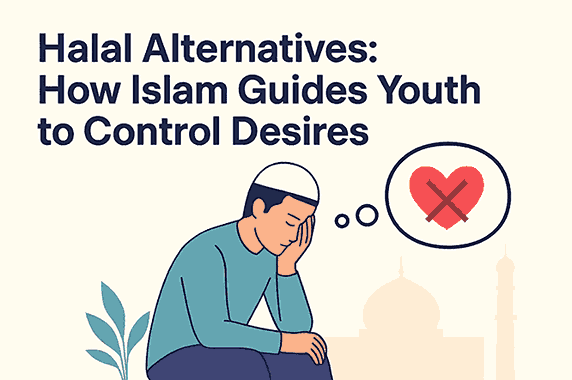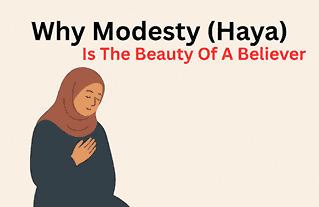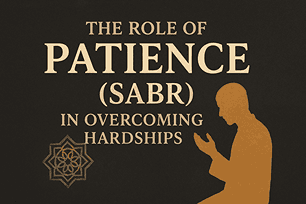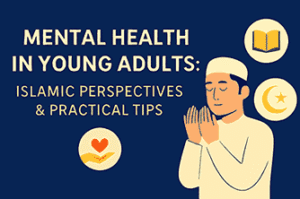Halal Alternatives: How Islam Guides Youth to Control Desires

Introduction
In the modern age, young people are constantly exposed to temptations through social media, entertainment, and peer pressure. These influences often promote instant gratification and normalize relationships outside the boundaries of Islam. Yet, Islam provides a balanced and practical framework to help youth manage their natural desires without suppressing them entirely. Instead of calling for denial of human instincts, Islam encourages channeling them through halal (permissible) means that protect both spiritual well-being and mental peace.
Understanding Desires from an Islamic Perspective
Desires are part of human nature. Islam does not condemn having desires; rather, it teaches discipline and self-control. The Qur’an acknowledges human emotions and urges but emphasizes that they must be managed within ethical and legal boundaries. Prophet Muhammad ﷺ guided the youth of his time to maintain chastity, promising them immense rewards for resisting temptations and seeking halal paths.
Halal Alternatives Encouraged by Islam
1. Nikah (Marriage)
Marriage is the most complete halal avenue to fulfill physical and emotional needs. The Prophet ﷺ said, “Marriage is my sunnah, and whoever turns away from it is not from me.” Nikah not only allows intimacy lawfully but also fosters love, responsibility, and emotional stability.
2. Fasting to Control Desires
For youth who are not yet able to marry, the Prophet ﷺ recommended fasting. Fasting trains the soul in self-restraint and reduces sexual urges by weakening physical impulses. It also strengthens spiritual consciousness, which keeps a person away from sin.
3. Spiritual Development
Increased prayer (Salah), recitation of the Qur’an, and engaging in acts of worship help redirect energy from temptation toward spiritual growth. When the heart is filled with love for Allah, unlawful desires naturally become less appealing.
4. Healthy Social Circles
Surrounding oneself with pious and like-minded friends can create a positive environment. Peer groups that encourage modesty, accountability, and Islamic values help protect one from falling into haram relationships.
5. Productive Hobbies and Education
Keeping busy with constructive activities such as learning new skills, volunteering, or pursuing education reduces idle time—the gateway to temptation. Islam encourages using one’s youth for knowledge and service.
Long-Term Benefits of Following Halal Paths
Choosing halal alternatives builds self-respect, emotional stability, and spiritual closeness to Allah. It shields youth from guilt, heartbreak, and the emotional trauma often associated with haram relationships. Moreover, it lays the foundation for strong, trust-based marriages in the future.
Conclusion
Islam does not deny human desires—it channels them. By providing halal outlets like marriage, fasting, spiritual practices, and meaningful pursuits, Islam empowers youth to guard their dignity while nurturing their souls. Controlling desires through these halal means is not a suppression of emotion but a liberation from impulsive behavior, leading to a life of inner peace and divine pleasure.













1 comment